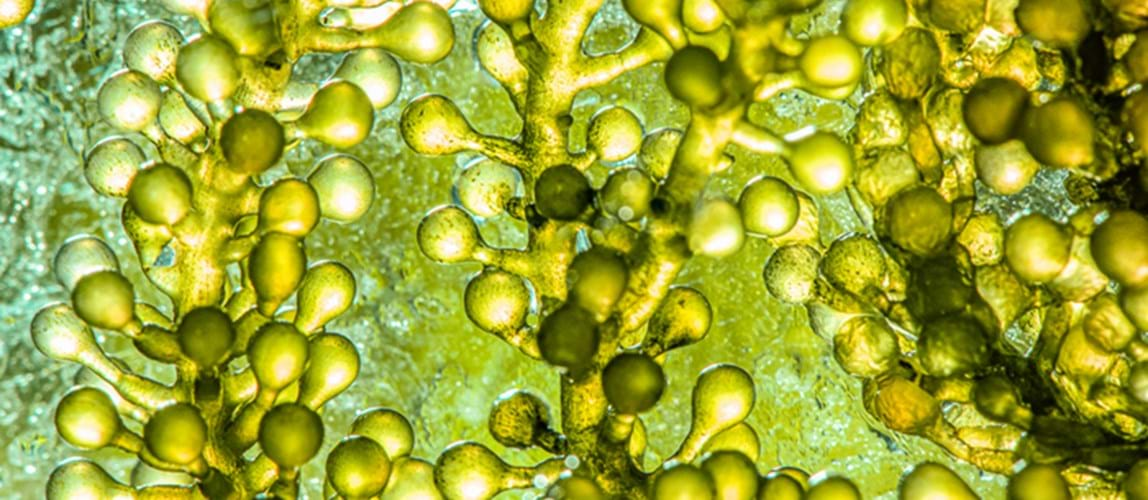Malaysia
Webinar: Microalgae Biorefinery and the Prospects of Algae Green Cities

- Date From 28th July 2021
- Date To 28th July 2021
- Price Free of charge, open to all.
- Location Online: 11:00 MYT. Duration: 1 hour.
Overview
Microalgae have received much interest as a biofuel feedstock in response to the uprising energy crisis, climate change and depletion of natural sources. Development of biofuels alone from microalgae does not satisfy the economic feasibility of overwhelming capital investments and operations. Hence, high-value co-products have been produced through the extraction of a fraction of algae to improve the economics of a microalgae biorefinery. Examples of these high-value products are pigments, proteins, lipids, carbohydrates, vitamins and anti-oxidants, with applications in cosmetics, nutritional and pharmaceuticals industries. To promote the sustainability of this process, an innovative microalgae biorefinery structure needs to be implemented through the production of multiple products in the form of high value products and biofuel.
Apart from that, the rapid urbanisation occurring around the world has led to a demand for clean energy resources. This is where green cities play a vital role in building a sustainable future for the citizens. The continual depletion of natural resources has made renewable energy from algae as a promising source of feedstock. The high growth rate of microalgae and their strong bio-fixation ability to convert CO2 into O2 have been gaining attention as this not only allows the production of profitable compounds, but also takes care of the environment through reduction of greenhouse gases. The focus on potential of microalgae in contributing to the development of green cities is rising and this is attributed to the advantages of microalgae and their ability to gather energy from sunlight and carbon dioxide, followed by the transformation of the nutrients into biomass and oxygen. The creation of green cities through algae cultivation is advantageous as waste and renewable materials can be put to good use. There are still challenges that needs to be overcome when using algae as a raw material, however, through the adaptation of algae as the source of renewable plants, we can create a better outlook of green cities.
Presenter
Kit Wayne Chew, Lecturer, Xiamen University Malaysia
Dr Chew is an outstanding young researcher involved in the field of bioprocesses and bioproducts recovery from renewable sources. He graduated within 2.5 years of his PhD studies and published more than 15 publications during his postgraduate studies. His dedication for quality research is the driving force which encourages him to do research analysis, compile the findings and report them in publications. He now has more than 90 publications in just 5 years of his academic career. He is working on areas relating to the biorefinery of microalgae for production of bioproducts and bioenergy. He is currently working on developing a multiphase system which can be utilized as a biorefinery tool for multiple products generation, and at the same time, find a possible usage for the waste biomass created to complete a circular bioeconomy of microalgae.
His passion for sustainability has also led to him to constantly be in the lookout for potential developments on a more efficient cultivation system, in order to obtain the highest possible biomass productivity with use of waste sources. He performed studies on wastewater sources for microalgae cultivation and found an increase in biocompounds composition and biomass productivity. He has various collaborations with international researchers from Taiwan, Japan, China, India, Vietnam, New Zealand and United Kingdom. He is also part of several industrial collaborative works, focusing on industrial wastewater treatment, biomass valorization and novel bioproducts synthesis. His is working with industries to commercialize the cultivation of microalgae in waste sources from the industry to assist in bioremediation and bioproducts generation.
The material presented in this webinar has not been peer-reviewed. Any opinions are the presenter’s own and do not necessarily represent those of IChemE or the Malaysian Member Group. The information is given in good faith but without any liability on the part of IChemE.
Webinar archive
This webinar is free of charge and open to all to attend, but if you wish to access the slides and a recording to replay on demand then you'll need to be a member of the Malaysian Member Group
Back to events